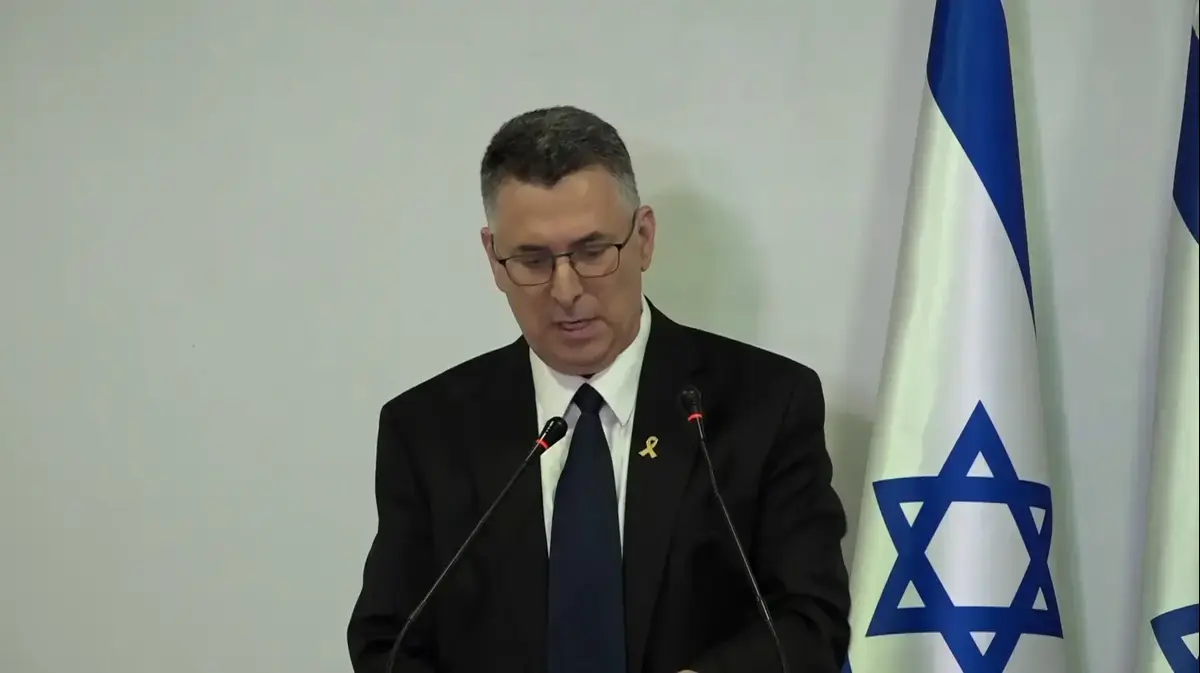The pressure created by the exposure of "Israel Today" worked: Justice Minister Gideon Saar decided today (Thursday) to postpone the vote in the government on Israel's accession to the Istanbul Convention, which was supposed to take place by the end of the month.
The convention is intended to combat the phenomenon of domestic violence and especially violence against women, but claims that right-wing elements also include problematic clauses that threaten religious freedom and undermine Jewish traditions, between which there is nothing and gender violence.
In addition, it is argued that the Convention opens the door to mass immigration to Israel for any woman who claims to have been a victim of gender-based violence, or that she may suffer such violence in the future if deported back to Israel.
"I learned the issue quickly and was able to bridge the differences between the government ministries regarding the convention," said Saar, who spoke at the Michal Sala forum.
"I put the convention on the Knesset table, but there are many inquiries, some of the organizations that oppose but also of two ministers (Interior Minister Ayelet Shaked and Education Minister Shasha-Bitton, T.M.). Some of the arguments are not serious and some need to be addressed and seen "I hope we can complete the process as soon as possible - I wanted to do it by the end of May and it will not happen, but I will try to finish this job as soon as possible."
Opposed the convention.
Minister of Education, Yifat Shasha Bitton, Photo: Oren Bo Hakon
Advocate Naama Sela, chairwoman of the Organizations for Families Forum, which fought against Israel joining the treaty, welcomed Saar's remarks: To solve the problem of violence against women, the problems involved in it are exemplified. "Israel must maintain its independence and not be drawn into harmful moves based on the shattering of nationalism."
We also noted in the forum that "the Minister of Education who joined the opponents of the Convention did well."
Dr. Yona Shreki, an expert in international law from the Center for Immigration Policy, argues that "the practical meaning of the Convention is an obligation of the State of Israel to absorb in Israel any woman in the world who claims to have been harmed by violence, as well as a commitment not to expel anyone "If you return to the country you came from." Shrek, "These elements do not at all correspond to the character of Israeli society.
"The issue of gender is taking an ultra-liberal turn in the framework of the convention, which clashes head-on with the religious, cultural and traditional perceptions of entire sectors of Israeli society."
MK Simcha Rotman noted that "ostensibly this is a convention to combat violence against women - an issue that we all support and therefore anyone who dares to criticize it is immediately attacked.
But in fact it is a very problematic document that puts the Council of Europe into the most sensitive considerations of the State of Israel, and even into the considerations of the family unit. "Rothman added that" the definition of violence in the Convention is very vague and broad.
It does not distinguish between violence and discrimination and legitimate personal and family considerations.
The courts in Israel are known to be extremely activist, and the convention opens a dangerous door for them.
"If, for example, a couple decides that the woman stays at home with the children, and then they quarrel, the wife can claim that according to the convention it is a form of violence."
"Extremely problematic document", MK Simcha Rotman, Photo: Knesset Spokeswoman - Noam Moskowitz
The Ministry of Justice, however, rejected the criticism of opponents of the convention.
The Ministry argues that it is possible to object to some of the articles in the Convention and to submit an "interpretative statement" regarding articles from which it is not possible to object according to the Articles of Association of the Convention.
This is a declaration submitted by the State, in which it seeks to give an interpretation or clarification as to how it intends to implement certain provisions contained in the Convention.
However, the Ministry's response clarified that States Parties may oppose an interpretative declaration submitted and claim that it amounts to a reservation prohibited by the Convention, in which case the declaration shall not apply to the relationship between the declaring State and the opposing State.
The Ministry of Justice further argues that criticism of the clauses allegedly opened to intervene in religious traditions and customs is fundamentally flawed, as Israel has already signed previous treaties in which similar wordings appear and experience shows the courts refrain from relying on them to intervene in these sensitive issues. .
Were we wrong?
Fixed!
If you found an error in the article, we'll be happy for you to share it with us







